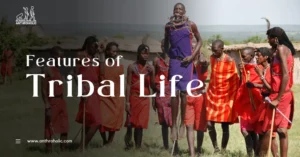+91-7303290503, +91-9557169661 | MON to SUN 10:00 AM - 6:00 PM
Cora Du Bois
Cora Du Bois broke barriers not only as an anthropologist, but as a woman in fields traditionally closed to her-academia, intelligence, and diplomacy.
Born in 1903 in New York City, Du Bois came of age during a time when anthropology was just beginning to incorporate the psychological dimensions of culture. Under the guidance of giants like Ruth Benedict and Franz Boas, she developed into one of the key figures of the “Culture and Personality” school, seeking to understand how societies shape individual character and vice versa.

But her career didn’t stop at theory. During World War II, she served as a high-level analyst in the Office of Strategic Services (OSS)-the precursor to the CIA-applying anthropological insights to international intelligence. Later, she became the first woman to hold a tenured professorship in Harvard’s Anthropology Department, mentoring generations of scholars and influencing global development policy.
Du Bois was a trailblazer in more ways than one: in the field, in the classroom, and in service to her country. Her life offers a window into the evolution of 20th-century anthropology, the integration of psychology into cultural studies, and the expanding role of women in academic and governmental leadership.
Early Life and Education
Cora Alice Du Bois was born on October 26, 1903, in New York City into a family with European roots and a strong commitment to education and public service. Her father was a Swiss-born physician, and her mother, Bertha Mark Du Bois, was of French Huguenot descent. Raised in a cosmopolitan household that valued intellectual pursuits, Cora was encouraged from an early age to engage with literature, languages, and global issues.
She began her undergraduate studies at Barnard College, earning a degree in history in 1927. But it was during her time at Columbia University-home to Franz Boas and Ruth Benedict-that she shifted toward anthropology. This period was a golden age for American anthropology, with Columbia as its intellectual center. Boas emphasized cultural relativism and detailed ethnographic fieldwork, while Benedict encouraged Du Bois’s interest in how personality and culture interact.
Du Bois’s decision to pursue anthropology also reflected her growing interest in the human condition—not just as a set of customs, but as lived experience shaped by psychological patterns. This would become a central theme in her later work.
Early Fieldwork and Cultural Anthropology
Du Bois’s first fieldwork took place among Native American communities in the American Southwest, where she studied Apache and Pueblo cultures. However, her most important ethnographic research occurred in the Netherlands East Indies (modern-day Indonesia). From 1937 to 1939, she conducted long-term fieldwork on the remote island of Alor, living among the Atimelang people.
This research culminated in her seminal 1944 book, The People of Alor, which remains a foundational text in psychological anthropology. Rather than just cataloging rituals and social structures, Du Bois examined individual life histories, emotional development, and personality formation within the broader cultural context. She used projective tests like the Thematic Apperception Test (TAT) to gather psychological data alongside traditional ethnography.
This approach placed her firmly within the Culture and Personality school, alongside other leading figures like Margaret Mead and Gregory Bateson. However, Du Bois distinguished herself through her methodological rigor and her insistence on treating Indigenous individuals as complex psychological subjects rather than mere data points.
Role in Government and World War II
When World War II broke out, Du Bois brought her anthropological training into an entirely new domain: intelligence and foreign policy. She joined the Office of Strategic Services (OSS), the U.S. wartime intelligence agency, where she became chief of research and analysis for South and Southeast Asia.
In this role, she produced cultural profiles, psychological assessments, and geopolitical briefings that were crucial for U.S. military and diplomatic strategy. Her work emphasized the importance of understanding local cultures, belief systems, and power structures-an approach far ahead of its time in intelligence work.
Du Bois’s experience in the OSS also shaped her thinking about applied anthropology-the use of anthropological insights in real-world settings. After the war, she became a vocal advocate for anthropologists to engage more directly with global issues, including post-war reconstruction and international development.
Academic Career and Major Contributions
After her service in the OSS, Cora Du Bois returned to academia with a reputation not only as a scholar, but also as a skilled administrator and analyst. In 1954, she made history by becoming the first woman to be appointed tenured professor of anthropology at Harvard University. This was a landmark achievement at a time when few women held senior positions in any academic field, let alone the Ivy League.
At Harvard, Du Bois expanded her research and continued to champion psychological anthropology, a field she helped shape. Her work combined Freudian and neo-Freudian psychological theory with ethnographic methods to better understand how cultural environments influence individual personality development.
She also began to focus on cross-cultural patterns in mental health, contributing to the emerging field of transcultural psychiatry. Du Bois collaborated with psychiatrists and social scientists to examine how different cultures conceptualized illness, emotion, and behavior-research that would later inform both psychology and global health policy.
Among her most influential contributions was her development of the concept of “modal personality structure”—a statistical and cultural profile of the most common personality traits within a given society. While later anthropologists debated the limits of this approach, Du Bois’s emphasis on individual variability within cultural norms marked an important departure from more rigid models of culture.
In addition to her scholarly work, she was a highly regarded teacher and mentor. Her students included notable anthropologists and public intellectuals who went on to shape the field in their own right.
Influence and Legacy
Cora Du Bois’s influence extended beyond anthropology into foreign policy, international development, and higher education. As an adviser to U.S. agencies and international organizations, she advocated for the application of anthropological insights to real-world problems, especially in post-colonial and developing societies.
She was a strong supporter of interdisciplinary collaboration and urged anthropologists to work alongside psychologists, sociologists, and political scientists to address global challenges. She also helped to open up space for female leadership in anthropology, both through her own example and through mentorship.
Du Bois’s work in Southeast Asia, and particularly her ability to analyze societies in transition, made her a respected voice in Cold War-era debates on modernization and cultural change. She emphasized the continuity between traditional beliefs and new political realities, warning against overly Western-centric or technocratic models of development.
Her approach-rigorous, humane, and culturally sensitive-has had a lasting impact on how anthropologists engage with topics such as identity, modernity, and psychological well-being across cultures.
Later Years and Recognition
Cora Du Bois retired from Harvard in 1968, but she remained intellectually active throughout her later years. She held visiting positions, consulted on international policy projects, and continued to write on topics ranging from education to ethics in fieldwork.
She received numerous honors for her contributions, including election to the American Academy of Arts and Sciences and the American Anthropological Association’s Distinguished Service Award. Her legacy was further solidified through the establishment of academic chairs and fellowships in her name.
Du Bois passed away in 1983, leaving behind a body of work that bridged the gap between anthropology and psychology, theory and practice, scholarship and service. Her pioneering career opened doors for future generations and remains a model for how anthropology can meaningfully engage with the world.
Conclusion
Cora Du Bois stood at the crossroads of some of the most transformative movements in 20th-century anthropology. As a scholar, she helped pioneer psychological anthropology, pushing the field beyond rigid cultural typologies to explore how individuals experience, internalize, and even reshape the values of their societies. As a public servant, she demonstrated how anthropology could be applied in diplomacy, intelligence, and development without losing ethical nuance.
Du Bois’s life was also a testament to perseverance and progress: she became the first woman tenured in Harvard’s Anthropology Department and served as a mentor and model for women in the social sciences at a time when such paths were rarely accessible. Her research, especially her work in Indonesia, remains a touchstone for scholars interested in the interplay between culture, personality, and power.
She leaves behind a legacy that is both intellectual and institutional. In her ability to move between worlds—academic and governmental, Western and non-Western, individual and collective-Du Bois offered a vision of anthropology that was both deeply human and globally relevant.
Her work reminds us that cultures are not just systems of symbols or structures of kinship, but lived realities shaped by minds, emotions, and histories-and that understanding those realities requires both empathy and precision.
References
- Seymour, Susan C. “Brief life of a formidable anthropologist: Cora Du Bois.” Harvard Magazine, January–February 2016. https://harvardmagazine.com/2015/12/vita-cora-du-bois
- “Cora Du Bois.” Bérose International Encyclopaedia of the Histories of Anthropology. https://www.berose.fr/article2365.html
- “Cora Du Bois: Agent and rigorous anthropologist.” Point Reyes Light. https://www.ptreyeslight.com/features/cora-du-bois-agent-and-rigorous-anthropologist/
- “Cora Du Bois and Twentieth-Century American Anthropology.” Allegra Lab. https://aotcpress.com/articles/cora-du-bois-twentiethcentury-american-anthropology/
- “Cora Du Bois.” DigitaltMuseum. https://digitaltmuseum.org/021037461149/du-bois-cora-1903-1991
- “Cora Du Bois.” Barnes & Noble. https://www.barnesandnoble.com/w/cora-du-bois-susan-c-seymour/1120736851
- “Cora Du Bois.” University of Nebraska Press. https://www.nebraskapress.unl.edu/nebraska/9780803262959/cora-du-bois




